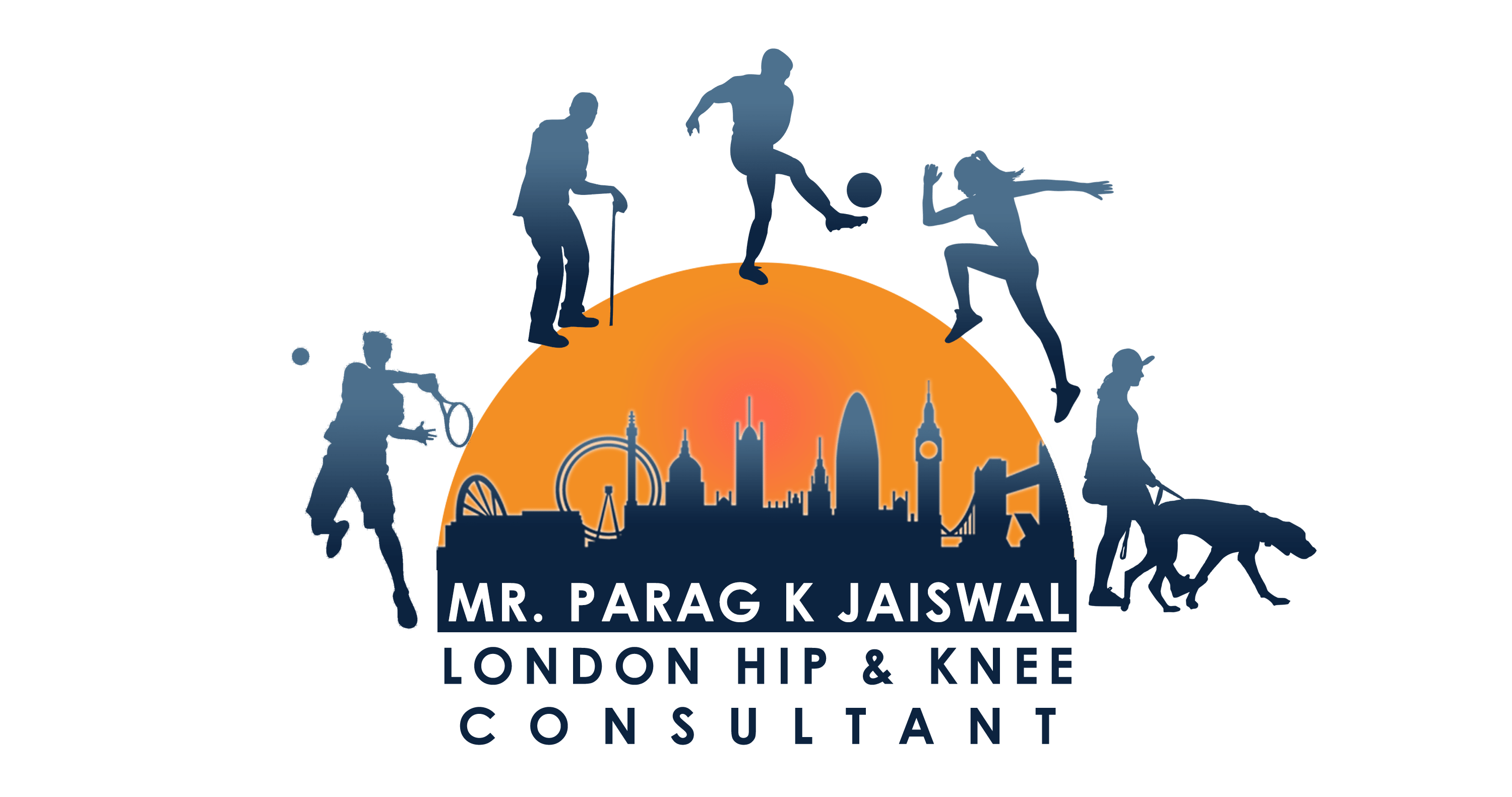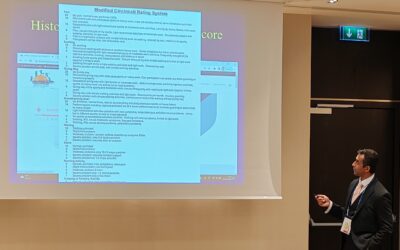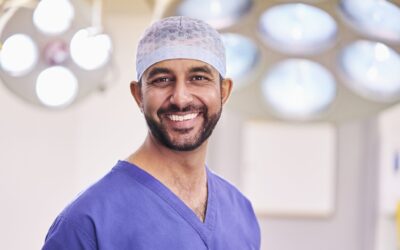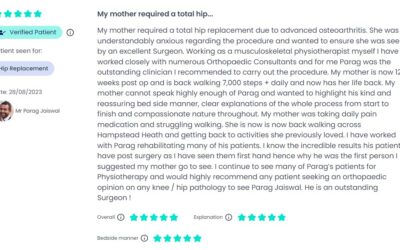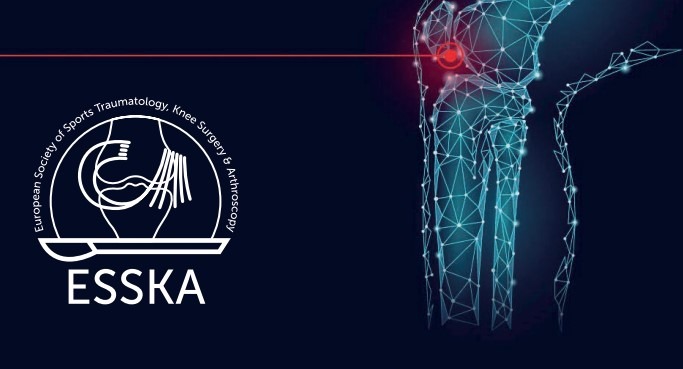
The programme ensures that successful participants demonstrate the background knowledge and surgical skills required to undertake arthroscopic anterior cruciate ligament reconstruction and lateral extra-articular tenodesis using the state-of the-art surgical techniques to the highest standard set by the ESSKA community.
As I sit on my flight home from Munich, I reflect on the past 2 days and the preparatory work I have done for this programme. The first thing to note was that there were a large number of applicants (120) and only 24 places. Selection was based a number of criteria and CV, and therefore it was a privilege to be selected. Though I always maintain my knowledge around the surgery I routinely perform, I read over 30 research papers on the latest innovations and techniques and my expertise was tested with an MCQ examination. I had thought that I would never have to do another exam again, but I was wrong, though I rather enjoyed this one.
It was the second stage of the programme that was really invigorating. We attended a number of lectures by world leading knee surgeons. Then we performed ACL reconstruction on cadavers and our surgical technique was assessed. My experience was rather pleasant, and I was able to discuss the finer details of different methods. I would like thank Dr. Thomas Patt (from The Netherlands) for making the whole experience so enjoyable. He informed me I did a very good ACL reconstruction, and if the leg was attached to the rest of the body, the patient would do very well!
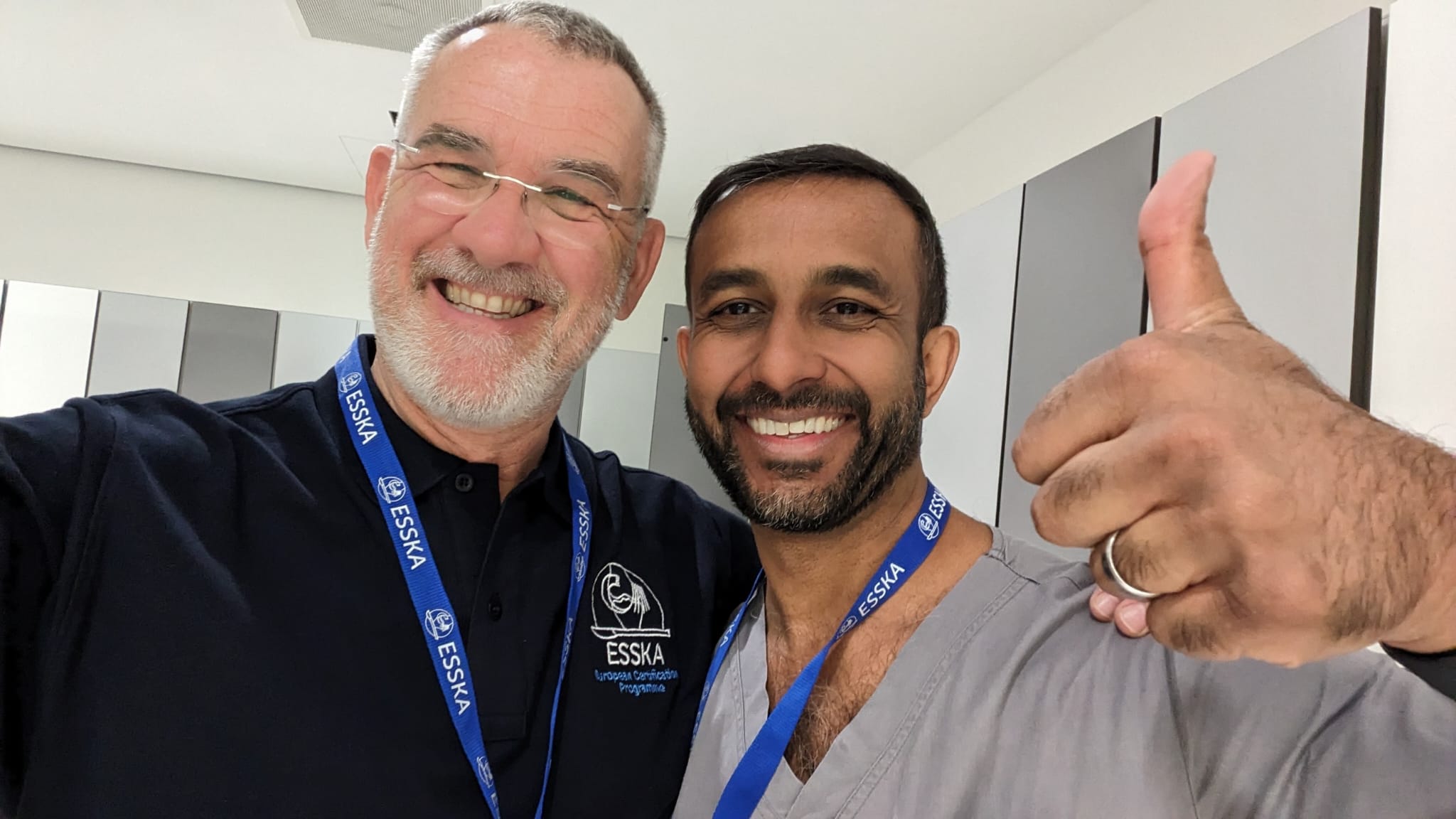
I had a number of discussions with other surgeons about other knee problems such as cartilage injuries in the knee, meniscus problems and patients with early osteoarthritis. I spoke to a number of delegates with practices in Lisbon, Stockholm, and Copenhagen about what they offer their patients and knee preservation techniques such as joint injections. They were very stimulating discussions around the dinner table!
The next and final stage involves taking a video of me performing this knee surgery and then having a zoom meeting where we discuss the surgical steps. Two other cases will be presented by the examiner and he will test my deeper understanding of knee injuries and the surgery required to make your knee better.
I have made some friends on this trip and look forward to visiting some of the leading knee surgery centres in Europe to further fine tune my surgical skills and offer the very best treatment for my patients with knee problems.
